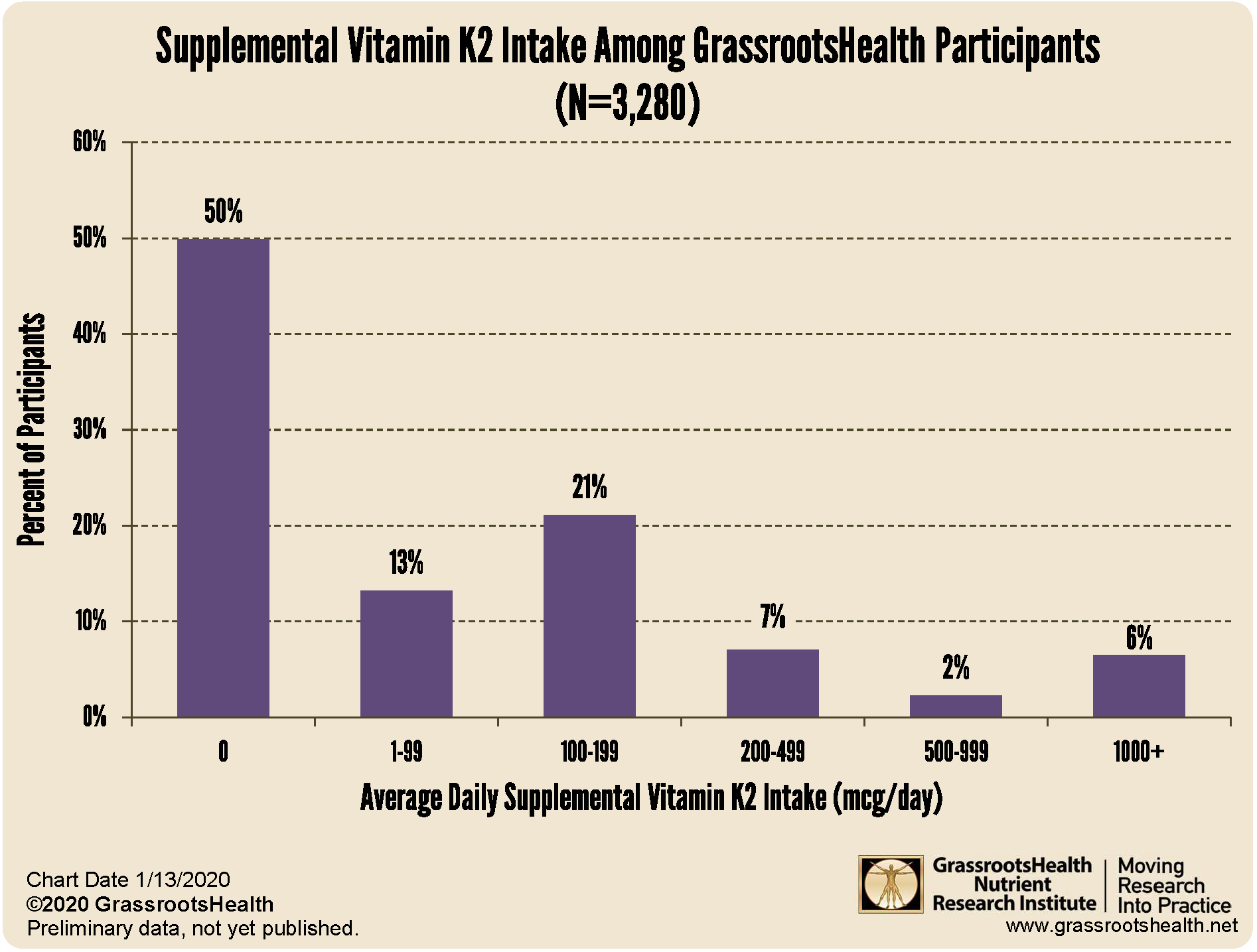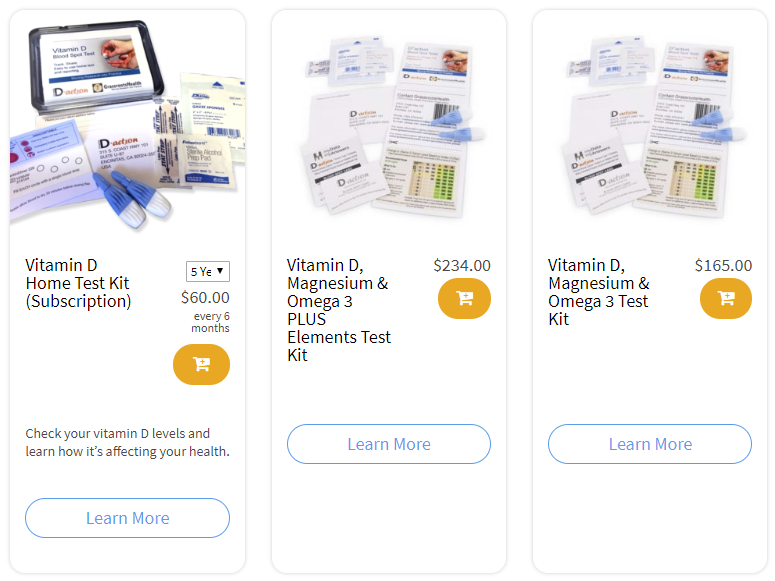Published on January 22, 2020
GrassrootsHealth collects information about supplemental intake amounts for a number of nutrients on its health and lifestyle questionnaire. In previous blogs we showed how much supplemental vitamin C and calcium GrassrootsHealth participants report taking. In today’s blog we will summarize reported intake amounts of supplemental vitamin K2.
What is Vitamin K?
 Vitamin K is a group of fat soluble vitamins that are important for blood clotting and bone health. The two main forms are Vitamin K1, which is found in dark leafy green vegetables, and Vitamin K2, which is found in fermented foods and animal products, and is also synthesized by the bacteria in the gut. The main forms of vitamin K2 are MK4 and MK7. There is still much research to be done on vitamin K. There is not enough evidence yet for an RDA, but the “adequate intake” of vitamin K for adults is 90 micrograms for women and 120 micrograms for men. (There is no specific RDA or adequate intake set for vitamin K2.) You can learn more about vitamin K by watching this webinar with Dr. Sarah Booth.
Vitamin K is a group of fat soluble vitamins that are important for blood clotting and bone health. The two main forms are Vitamin K1, which is found in dark leafy green vegetables, and Vitamin K2, which is found in fermented foods and animal products, and is also synthesized by the bacteria in the gut. The main forms of vitamin K2 are MK4 and MK7. There is still much research to be done on vitamin K. There is not enough evidence yet for an RDA, but the “adequate intake” of vitamin K for adults is 90 micrograms for women and 120 micrograms for men. (There is no specific RDA or adequate intake set for vitamin K2.) You can learn more about vitamin K by watching this webinar with Dr. Sarah Booth.
Vitamin K2 Intake Among GrassrootsHealth Participants
Participants who reported a value for supplemental vitamin K2 were evenly split with 50% reporting taking some and 50% reporting not taking any. The chart below shows the distribution of average daily supplemental vitamin K2 intake amounts for over 3,000 participants.
Among those taking a vitamin K2 supplement, the median intake amount was 160 mcg/day. About one-fourth (26%) report taking less than 100 mcg/day, about half (56%) report taking between 100 and 499 mcg/day, and 17% report taking 500 mcg/day or more. However, we noticed that some supplement labels are confusing or unclear with regard to vitamin K and list amounts for “Vitamin K Complex” (or something similar) which includes both vitamin K1 and vitamin K2, therefore some of these amounts may also include vitamin K1 rather than only vitamin K2.
Could Your Vitamin D Level be Affected by Your Intake of Vitamin K?
Are you getting enough of vitamin D’s co-nutrients, or could they be affecting your vitamin D level? Make sure you know your vitamin D level, and take steps to keep it within a target of 40-60 ng/ml or 100-150 nmol/L! Through GrassrootsHealth Nutrient Research Institute, you can also test your essential elements magnesium, copper, zinc and selenium, toxins such as lead, mercury and cadmium, as well as your omega-3 levels, inflammation levels and thyroid stimulating hormone (TSH) level. Find out your levels today! Log on to the test selection page (click the link below) to get your tests and see for yourself if your levels can be improved.
Make sure you track your results before and after, about every 6 months!
Click Here to Access the Test Page
How can I track my nutrient intake and levels over time?
To help you track your supplement use and nutrient levels, GrassrootsHealth has created an online tracking system called myData-myAnswers. For each specific supplement, you can track what days you take it, how much, and many other details. This will help you know your true supplemental intake and what patterns of use work for you to reach and maintain optimum nutrient levels. Check it out today!








